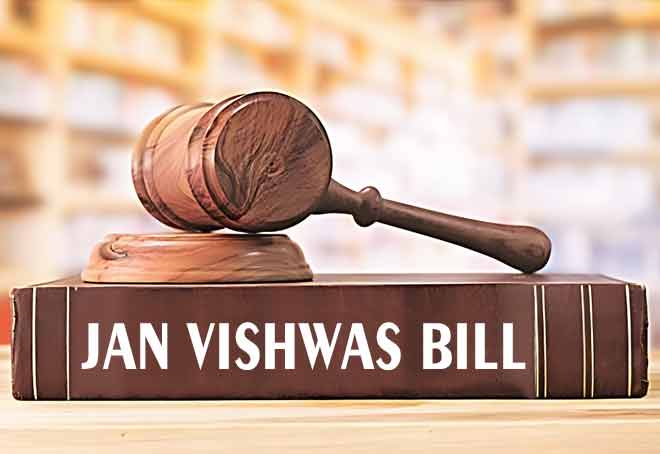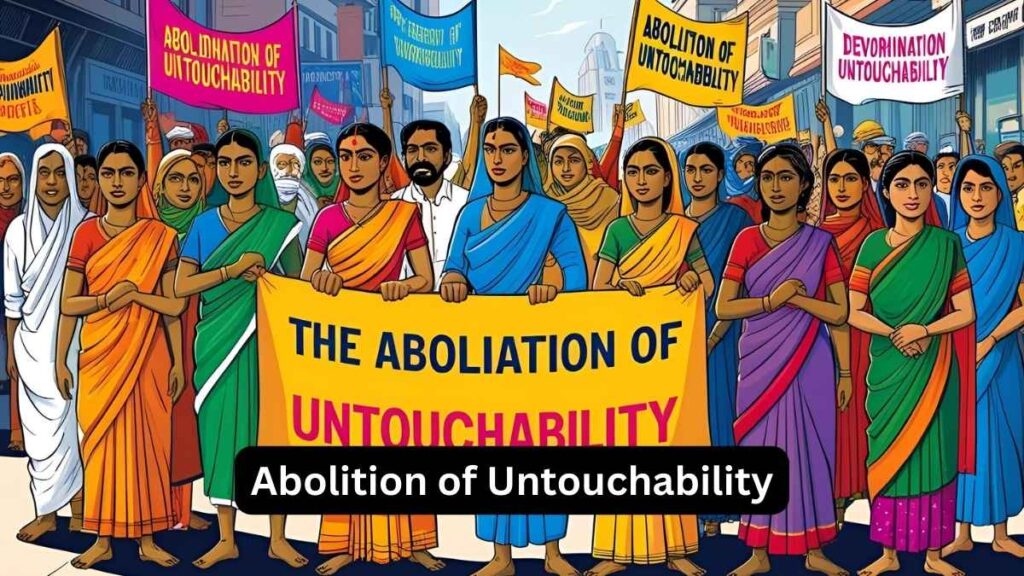Harmonising Heritage and Modernity: India’s Constitution and Civilisational Identity
Harmonising Heritage and Modernity
India, with its ancient and diverse civilisation, has long been shaped by its cultural values and historical experiences. The Constitution of India, introduced in 1950, was meant to unify a diverse population under a single legal framework, promoting democracy, equality, and justice. However, its role in preserving or disrupting India’s civilisational identity remains a contentious topic.
J. Sai Deepak, a constitutional litigator, critiques the Constitution as a colonial construct that alienates Indians from their roots. On the other hand, Faizan Mustafa, a constitutional scholar, sees it as a dynamic, forward-looking document rooted in India’s cultural essence. While these perspectives differ sharply, both highlight essential truths about India’s evolving identity. The challenge lies in harmonising these views to ensure that India remains both true to its past and ready for the future.
- Sai Deepak’s Perspective: Uneasy Coexistence
Sai Deepak’s perspective highlights a key tension between India’s Constitution and its ancient civilisational ethos. He argues that, although the Constitution emerged after India’s independence, it continues to carry colonial influences that undermine the country’s cultural identity.
Deepak believes that by relying heavily on Western models, the Constitution disrupted India’s civilisational continuity. He critiques concepts like secularism and civic nationalism, calling them borrowed ideas that often clash with India’s cultural and religious traditions. These, according to him, have distanced India from its roots and created a mismatch between the nation’s governance framework and its cultural essence.
One of Deepak’s main critiques focuses on secular civic nationalism. He views secularism as a Western concept imposed on India, which marginalises its traditional identity markers like religion, language, and culture. For Deepak, these markers are deeply ingrained in Indian society and have played a crucial role in holding the country together for thousands of years. He worries that civic nationalism—where loyalty to constitutional principles is prioritised over cultural identity—weakens the sense of self in Indian communities. This erosion, he suggests, risks severing Indians from the traditions that have ensured their societal cohesion for millennia.
Deepak strongly advocates for “decoloniality,” which means reclaiming India’s indigenous identity from colonial legacies. He argues that the Constitution uses secularism to alienate Indians from their cultural roots, rather than integrating India’s civilisational values into its governance framework. Deepak points to instances where traditional practices have been dismissed as regressive, arguing that this mindset reflects a lingering colonial attitude. He believes that India must reframe its approach to governance by incorporating its rich cultural heritage into legal and political systems, rather than discarding them in favour of imported ideals.
Another of Deepak’s concerns is what he sees as the limitations of the Constitution. He questions the belief that the Constitution alone ensures stability and diversity in India. Instead, he attributes India’s resilience and pluralism to its dharmic traditions, which predate the Constitution by thousands of years. To support his argument, Deepak compares India to neighbouring countries like Pakistan and Bangladesh, where constitutions have failed to prevent societal breakdowns. He suggests that India’s pluralistic nature owes more to its cultural and spiritual heritage than to any written legal framework.
Deepak also argues for a stronger reconnection with India’s civilisational roots. He cautions against treating the Constitution as an unchangeable document, suggesting that blind adherence to its Westernised framework could strip India of its unique identity. For him, integrating traditional values into governance is critical for India’s future. Deepak emphasises that this approach does not mean rejecting progress but rather enriching governance by drawing on India’s historical wisdom while avoiding over-reliance on imported systems.
In essence, J. Sai Deepak believes that the Constitution, while foundational, should not override India’s civilisational identity. He urges a governance model that blends constitutional principles with India’s cultural and spiritual heritage. Deepak sees this balance as essential to preserving India’s unique identity in a world that increasingly prioritises globalised, homogenised frameworks. For India to thrive, he argues, its governance must reflect its ancient traditions while still adapting to modern realities.
Faizan Mustafa’s Perspective—Constitution as a Bridge
Faizan Mustafa’s perspective, on the other hand, portrays the Indian Constitution as a progressive and inclusive document that reflects the essence of India’s civilisational heritage. Mustafa argues that the Constitution is deeply rooted in India’s cultural traditions while simultaneously addressing the demands of a modern society.
He cites the debates of the Constituent Assembly, where leaders like Jawaharlal Nehru and Syama Prasad Mookerjee emphasised India’s 5,000-year-old civilisational journey. For Mustafa, the Constitution acts as a bridge, connecting India’s ancient values with its aspirations for a progressive future.
One of Mustafa’s key points is his defence of the Constitution’s inclusivity. He rejects the idea that the Constitution is a colonial legacy, asserting instead that its principles, such as dharma (righteousness), are in line with India’s traditions of tolerance and pluralism. Mustafa argues that the Constitution protects diversity and ensures justice for marginalised communities. Unlike calls to revive selective traditions that may exclude certain groups, he sees the Constitution as a tool to uphold fairness and equality across India’s varied cultural and social spectrum.
Mustafa also highlights the importance of adopting modern principles within the constitutional framework. He explains how the framers deliberately included Western ideas to address historical injustices such as caste discrimination and gender inequality. These adaptations, according to Mustafa, were necessary to create a just and equitable society. Fundamental rights and affirmative action are examples of how modern legal frameworks, blended with Indian values, promote justice and social progress. This deliberate mix ensures that the Constitution addresses both historical and contemporary challenges.
Criticising civilisational essentialism, Mustafa opposes using India’s cultural heritage to reject constitutional values like secularism and socialism. He defends judgments like the Sabarimala case (2018), which upheld gender equality, as aligning with India’s ethical traditions of justice and fairness. Mustafa believes that civilisational heritage should not justify practices that exclude or marginalise certain groups. For him, the Constitution provides a balanced approach, ensuring that ethical traditions evolve in step with societal progress.
Finally, Mustafa emphasises the Constitution’s adaptability and forward-looking nature. He describes it as a living document that evolves to meet the changing aspirations of society. While acknowledging India’s glorious past, Mustafa cautions against romanticising it uncritically. He argues for a balanced approach that values progress over rigid adherence to outdated practices. In his view, the Constitution lays a solid foundation for an inclusive and equitable future, guiding India in a way that respects its traditions while embracing modernity.
Mustafa, in short, views the Indian Constitution as a dynamic and progressive framework rooted in India’s cultural heritage. He highlights its ability to adapt to changing times while upholding the values of justice, equality, and inclusivity. Mustafa’s perspective underscores the Constitution’s role as a bridge between India’s ancient traditions and its modern aspirations, ensuring that the nation continues to thrive as a diverse and united democracy.
Comparing and Contrasting Perspectives
The perspectives of J. Sai Deepak and Faizan Mustafa on the Indian Constitution reflect two very different ways of looking at its role in shaping India’s identity. Deepak believes the Constitution disrupts India’s civilisational continuity and carries forward colonial influences. He views it as an imposed framework that has distanced Indians from their cultural roots. On the other hand, Mustafa argues that the Constitution reflects India’s cultural essence while fostering progress. For him, it is not a break from the past but a bridge that connects India’s ancient heritage with its modern aspirations.
On the subject of secularism and civic nationalism, Deepak sees these principles as foreign ideas that undermine India’s traditional identity markers, such as religion, language, and culture. He believes these markers are essential for societal cohesion and should take precedence over imposed Western values. Mustafa, however, disagrees. He views secularism and civic nationalism as aligning perfectly with India’s pluralistic traditions. According to him, these principles are tools for promoting harmony and ensuring justice in a diverse and multi-religious society.
When it comes to civilisational heritage, Deepak emphasises the need to focus on pre-colonial values. He argues that India’s rich history and traditions offer a more authentic framework for governance than the Constitution. Mustafa takes a different stance, celebrating the Constitution as a balanced mix of India’s past and present. He believes it honours the country’s ancient values while incorporating modern ideas to address issues like inequality and injustice.
Finally, their views on the future diverge as well. Deepak believes India’s civilisational values provide a more enduring foundation for its future. He feels that reconnecting with these traditions is crucial for preserving India’s unique identity. Mustafa, in contrast, sees the Constitution as a dynamic tool that evolves to meet the needs of a changing society. He argues that its adaptability ensures inclusivity and promotes growth, making it the ideal guide for India’s future.
In summary, Deepak emphasises reclaiming civilisational roots, while Mustafa highlights the Constitution’s ability to balance heritage and progress. Both perspectives offer valuable insights into how India can navigate its identity in a rapidly changing world.
The Need for Balance
While both J. Sai Deepak and Faizan Mustafa offer valuable perspectives, the best way forward for India is to strike a balance between constitutional values and civilisational heritage. Relying entirely on the Constitution or fully on cultural traditions would not adequately address the diverse needs of India’s society. Instead, harmonising these elements can help build a nation that respects its roots while adapting to modern challenges.
The Constitution serves as a strong foundation for justice, equality, and governance in a pluralistic society. It plays a vital role in protecting marginalised groups and ensuring that everyone has equal rights. For example, the abolition of untouchability was a landmark move that addressed centuries of discrimination against Dalits. Similarly, affirmative action, such as reservations in education and jobs, aims to uplift disadvantaged communities. These provisions show how the Constitution helps correct historical injustices and creates opportunities for those who have been traditionally excluded. Without such measures, many groups would struggle to participate fully in India’s progress.
At the same time, preserving India’s civilisational wisdom is equally important. India’s cultural ethos, rooted in principles like dharma (righteousness), tolerance, and community, complements the values enshrined in the Constitution. These traditions offer a moral compass that has guided Indian society for centuries. For instance, the idea of Vasudhaiva Kutumbakam (the world is one family) promotes unity, compassion, and respect for diversity. This ancient principle aligns closely with modern ideals of human rights and equality, showing that India’s heritage can enrich its governance by providing ethical and cultural depth.
Deepak’s call for decoloniality highlights an important point—that India must reclaim its identity from colonial influences. However, this does not mean rejecting the Constitution entirely. Instead, civilisational values should be integrated into legal and governance systems where appropriate. For example, regional autonomy in cultural governance could allow states or communities to preserve their local traditions while still adhering to fundamental rights. This approach respects India’s cultural diversity without compromising on democratic principles or equality under the law.
Finally, Mustafa’s emphasis on the Constitution’s adaptability is crucial. The Constitution is not a rigid document; it evolves to meet the needs of changing times. Amendments and judicial interpretations ensure that it remains relevant to contemporary challenges. For example, the decriminalisation of homosexuality in the Navtej Johar case and the recognition of privacy as a fundamental right in the Puttaswamy case demonstrate how the Constitution responds to societal shifts.
These judgments protect individual freedoms while promoting inclusivity, showing how the Constitution can adapt without losing its core principles. These decisions underscore how the Constitution accommodates societal shifts without deviating from its foundational principles and, precisely due to this reason, we say our Constitution as a living document. In fact, it becomes quite fascinating to see how an individual like Thomas Jefferson (3rd President of the United States) used to think about the lifespan of a constitution.
Jefferson’s assertion that the life of a constitution is shaped not by its drafting but by the experience and evolving needs of the people highlights the organic nature of constitutional governance. Former jurist Fali S. Nariman, in his book You Must Know Your Constitution aptly links this to India’s constitutional journey, illustrating how experience and interpretation continually rejuvenate the document.
However, the quote from Robert Frost—“miles to go before I sleep” in the famous poem “Stopping by Woods on a Snowy Evening”—aptly underscores the challenges that remain. Despite advancements in inclusivity, cases like Supriyo Chakraborty v. Union of India (2023) reveal lingering gaps. The Supreme Court’s decision to exclude marriage as a fundamental right reflects the broader societal hesitation to fully recognise LGBTQ+ equality. While steps like the decriminalisation of Section 377 and increased representation of transgender individuals in public and private sectors are progressive, the denial of marriage rights highlights inconsistencies in achieving comprehensive inclusivity.
These challenges point to a deeper need for alignment between constitutional values and societal traditions. The issue of marriage rights for the LGBTQ+ community is not merely a question of legal reform but also one of reconciling the progressive principles enshrined in the Constitution with long-standing cultural norms. Though civil unions offer some recognition, they fall short of the broader legal and social acceptance that marriage provides. As such, this remains an area where the Constitution’s adaptability will be tested in the years to come.
The nub is that India’s best path lies in harmonising constitutional values with civilisational heritage. This balance ensures justice, equality, and inclusivity through the Constitution while drawing on cultural traditions for moral depth and societal resilience.
Conclusion
The debate between J. Sai Deepak and Faizan Mustafa on India’s Constitution and civilisation underscores a critical question: Should India’s future rest on its constitutional framework or its cultural heritage? The answer lies in balance. By blending the strengths of the Constitution with the timeless wisdom of India’s civilisation, the country can preserve its identity while embracing progress. This synthesis ensures that India remains true to its roots and ready for an ever-changing world.
Subscribe to our Youtube Channel for more Valuable Content – TheStudyias
Download the App to Subscribe to our Courses – Thestudyias
The Source’s Authority and Ownership of the Article is Claimed By THE STUDY IAS BY MANIKANT SINGH



